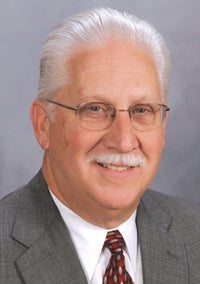Philip Pettinelli, president and CEO of Southbridge Savings Bank, doesn’t know what the future will bring.
His bank may end up buying up another bank, or some other company. It may find itself in difficult financial straits and decide to sell stock to raise capital. Though Pettinelli said the bank has no specific plans to do either of those things right away, it is in the process of reorganizing so that those moves would be possible.
Restructuring
Southbridge Savings is seeking approval from state regulators to convert into a stock bank. The bank will be wholly owned by a Delaware holding company called Green Valley Bancorp Inc., which, in turn, will be wholly owned by a Massachusetts mutual holding company also under the Green Valley name. Bank officials will stay the same, and customers shouldn’t notice any difference, Pettinelli said.
âIt’s really not all that complicated,â he said. âThe bank is still going to operate pretty much like it already did.â
The bank’s financial performance includes a 21 percent increase in total assets from $360.8 million in 2004 to $435.9 million in 2007. The bank’s profit has not performed as well, however. In 2007, the bank’s net income totaled $925,000, a significant drop from the $2.8 million in net income the bank recorded in 2004. However, many banks have seen declines in net income due to low net interest margins, which is the difference between interest income and interest expenses.
Pettinelli does not rule out the possibility of a merger for Southbridge Savings. He said he is definitely talking to other bank officers about the idea of a merger and that those kinds of conversations among banks are very common.
âWe have lunches all the time,â he said. âThe conversations go on, but to make something happen is a challenge.â
However, he said growing by opening new branches is even more difficult, with banks already on just about every corner. Southbridge Savings has branches in Southbridge, Charlton, Holden, Sturbridge, Worcester and North Oxford.
Pettinelli said one of the other main opportunities that converting to stock form opens up – selling stock to the public to raise capital – has plenty of problems to go with its advantages. The move is a way to make money in difficult economic situations, or to raise funds for new endeavors, but it means opening the bank up to criticism from stockholders.
He noted that Medway-based Strata Bank is dealing with an activist investor who has filed suit against the bank in addition to taking a full-page ad out in a local daily paper listing his criticism.
Pettinelli said he wants to avoid that kind of conflict.
âI hope by the time this bank [sells stock] I’ll be retired,â he said.
If the bank did decide to sell stock, the mutual stock company would be required to keep at least a 51 percent interest, according to its filing with the state.
A Popular Option
Despite the problems that can come with making changes, Massachusetts Division of Banks General Counsel Joseph A. Leonard Jr. said many banks are looking for new options and ending up converting to stock form.
âIt’s a corporate structure that has been around and more and more mutual institutions are choosing to get into that corporate structure for the opportunities that it may give [them],â he said.
In 1987, federal and state laws changed to allow Massachusetts mutual banks to convert into stock banks, Leonard said, and since then more than 50 have applied to do so.
Brian Thompson, president and CEO of Commerce Bank in Worcester, which has always been a stock bank, said Massachusetts is unusual in that it has a large number of mutual and small banks. He said he has seen more mutual banks in the state converting to stock over the past five years.
âBy forming a mutual holding company, it gives the board and the company options that they didn’t have if they didn’t do that,â he said. âIt’s not necessarily good or bad. It’s what the bank feels is in their best interest.â
Pettinelli said Southbridge had been considering reorganizing for five or six years before it jumped in. The only impediment to moving forward quicker, he said, was money. Though he declined to put a price tag on the lawyer-hours and paperwork involved in the conversion, he said it was significant. But, he said, the bank finally decided to get it done so it could be poised to take advantage of opportunities that come its way.
After all, converting a bank’s form is not something that can be done overnight. Pettinelli said he started the process last July and doesn’t expect to be finished with it until July 31 of this year.
The bank’s corporators recently voted to approve the conversion, and the Massachusetts Board of Bank Incorporation and Division of Banks will hold a hearing on June 26 to consider it.
That’s mostly a formality, Leonard said. He said no other parties have filed testimony about the proposed change, which is typical for these types of hearings.
âFor the most part, these are viewed as internal reorganizations,â he said. âIn and of itself it’s not doing anything to affect competition.â

